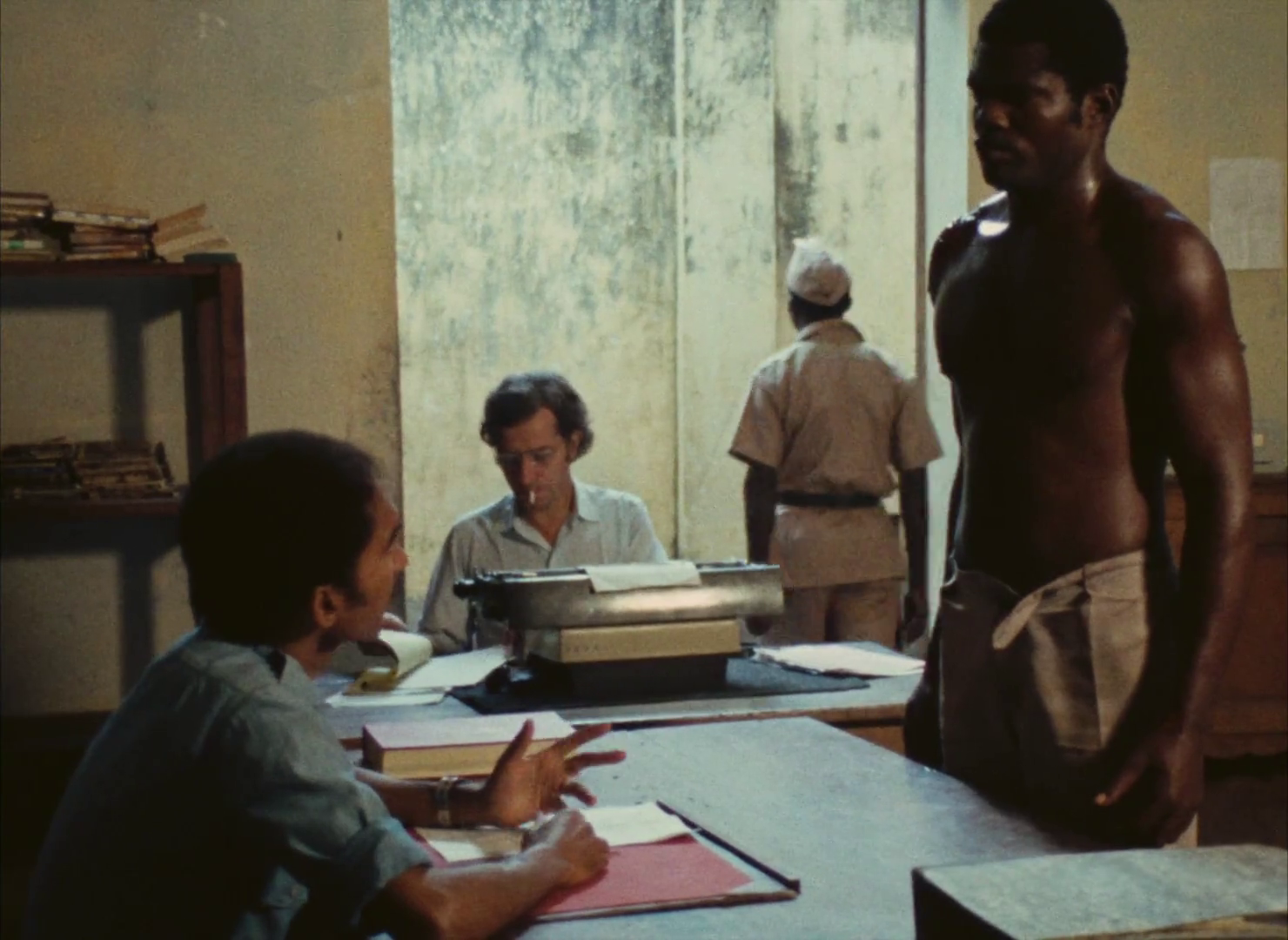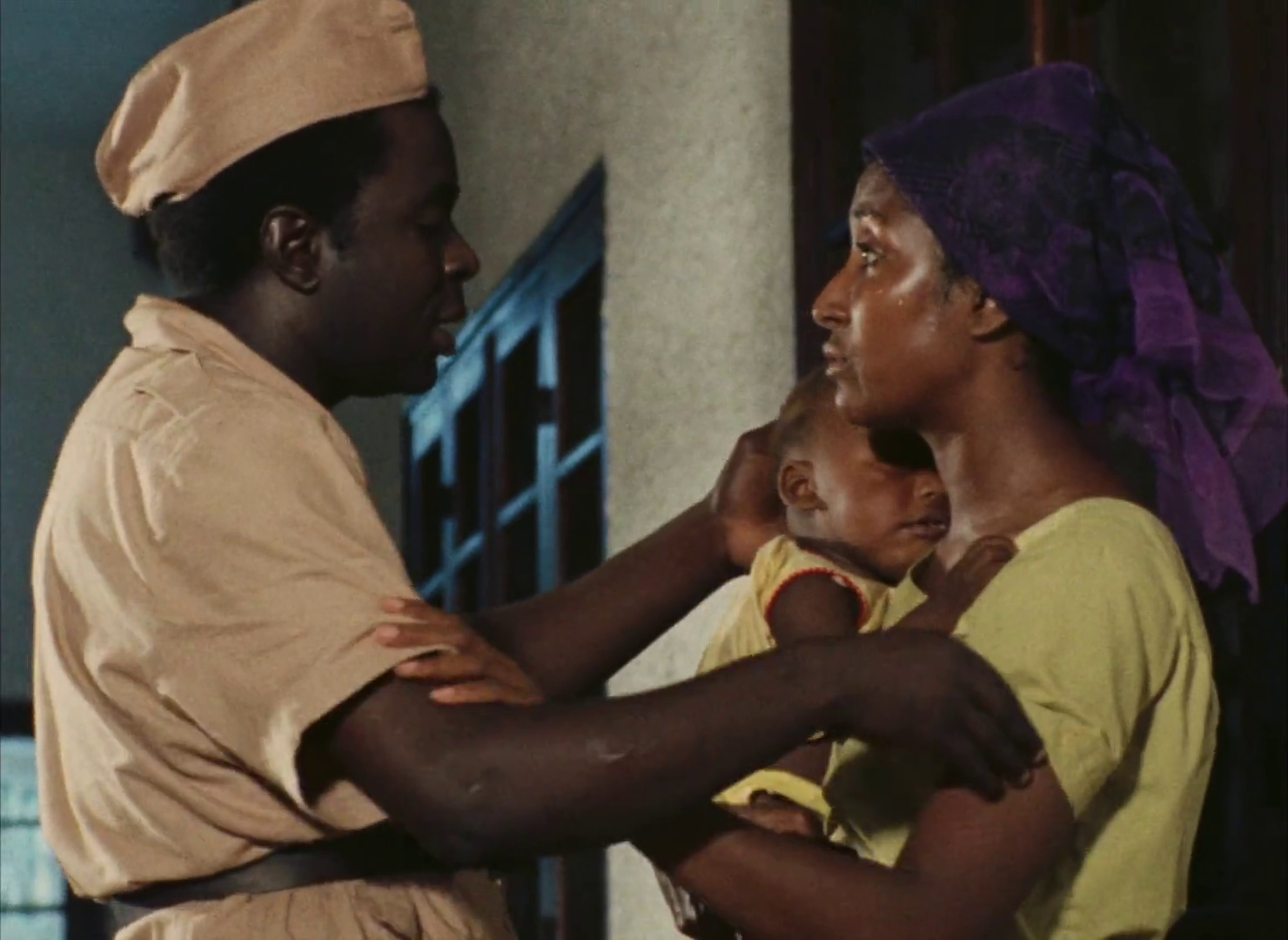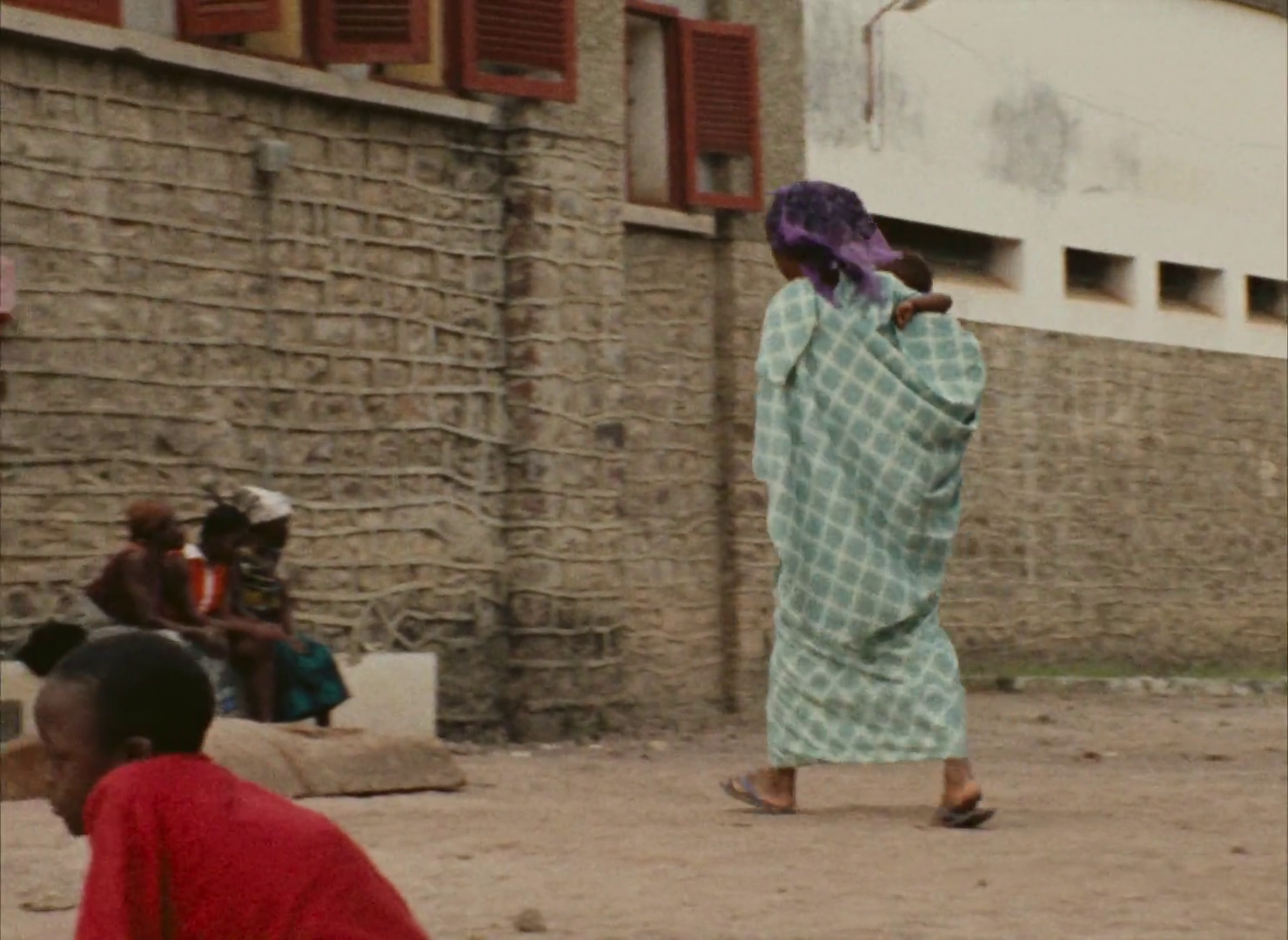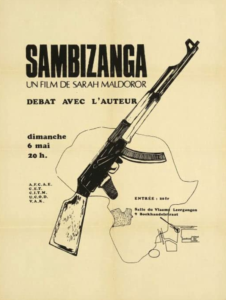|
Genres, Themes, Actors, and Directors:
- African Films
- Class Relations
- Labor Movements
- Prisoners
- Race Relations and Racism
- Revolutionaries
- Strong Females
Response to Peary’s Review:
Peary informs us that this “radical film” — “directed by Sarah Maldoror, French-born black feminist, and co-written by her husband, a leader in the Angolan resistance” — was, according to Maldoror, “made ‘to make Europeans, who hardly know anything about Africa, conscious of the forgotten war in Angola, Mozambique, and Guinea-Bissau‘.” (I, for one, will admit that I knew nothing about the Angolan War of Independence before watching this film.) Peary writes that as the “politically naive” wife of a secret activist “goes from prison to prison in search of her husband,” she “discovers that what is happening to prisoners (including her husband) is horrific,” and “she develops a political consciousness.” He argues it’s a “terrific, unforgettable picture,” one that “reveals the horrid nature of political oppression in colonial countries where there are liberation movements” — and I would definitely agree. It’s not at all an easy film to watch, especially given that Maldoror highlights not only the toxic effects of colonialism but the stark reality of racism and gender inequality. However, it also portrays the resilience of people who band together for mutual support (one woman even breast-feeds Andrade’s baby for her during a rest stop), and demonstrates that Oliviera’s torture is not suffered in vain.
Redeeming Qualities and Moments:
- A powerful neo-realist tale of political resistance



Must See?
Yes, as a unique window into a specific cultural time and movement, and for its historical significance as what was likely the first feature film directed by a woman in Sub-Sarahan Africa.
Categories
Links:
|




One thought on “Zambizanga / Sambizanga (1973)”
First viewing. Agreed; a once-must for its cultural / historical significance.
That said, the ones more likely to watch will be those with a specific interest in the subject matter. I say that because this is quite a difficult film to find. I did happen to find it online but that was (finally) sort-of by chance. As well, the print I saw was rather in need of restoration; the thought occurred to me that this flick could easily be in danger of becoming a lost film.
Note: In the opening credits, the title of the film begins with an ‘S’, not a ‘Z’.